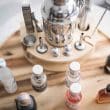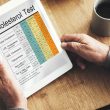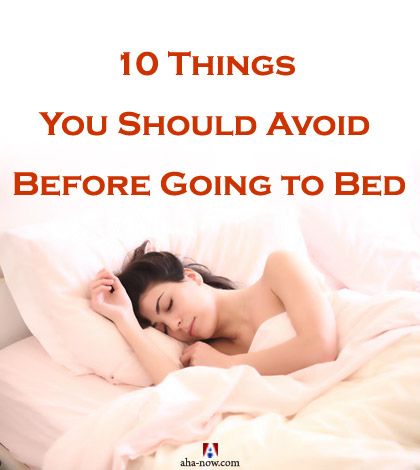How to Break Caffeine Addiction

Table of Contents
- How Does Caffeine Impact You
- How Can You Tell if You Are Dependent on Caffeine
- 10 Tips to Break Your Coffee Addiction
- Understand it will be both a physical and mental battle at times
- Slowly reduce your caffeine intake
- Plan ahead and substitute your typical caffeinated beverage
- If you need a pick me up, choose a healthier option
- Be on the lookout for other caffeine sources
- Manage caffeine withdrawal
- Put away the coffee machine
- Find other energy sources
- Healthy sleep schedule
- Be patient with yourself
- Wrapping It Up
Your daily tea or coffee is a caffeine drink. Too much caffeine can cause symptoms similar to anxiety if you’re already prone to anxiety. Also, if you cannot do without your daily caffeine drink and that starts affecting your body and mind, then you may be addicted to it. Here’s how you can break your caffeine addiction and not let it adversely impact you mentally and physically. ~ Ed.
Coffee, lattes, tea…for so many of us, these drinks are a staple in our daily routines. While caffeine can help you feel more awake and have some health benefits, it can also increase anxiety symptoms and become very addictive.
This post is going to outline how caffeine can affect you, how to tell if you are dependent on caffeine, and how to break your caffeine addiction.
How Does Caffeine Impact You
To be clear, caffeine does not “cause” anxiety, but it can exacerbate symptoms for someone who is already prone to anxiety.
Caffeine can cause symptoms that are very similar to the physical symptoms of anxiety, so your mind and body may interpret these sensations as anxiety.
These symptoms include:
- Fast heartbeat
- Shakiness
- Headache
- Nervousness
- Headache
- Frequent urination
- Irritability
- Digestion issues or stomach pain
When you have anxiety and experience some of these symptoms due to caffeine, our mind can mistake these physical effects of caffeine as the physical effects you may typically experience due to anxiety.
How Can You Tell if You Are Dependent on Caffeine
Caffeine can be very addictive. It’s a drug that alters your brain to feel more awake, so your body will crave that effect when it’s denied the drug later.
If you drink coffee or caffeine every day, especially in larger quantities, you may be addicted or dependent on the caffeine.
Here are some of the ways to tell if you are dependent on caffeine:
You feel withdrawal if you don’t have caffeine every day
These withdrawal symptoms when you don’t drink caffeine are significant indicators that you may be dependent on it: Headache, fatigue, low energy, depressed mood, irritability, and poor concentration.
You feel distress without it
Another indicator that you are dependent on caffeine is that you feel distressed if you aren’t able to have caffeine for some reason. If you’re running late to work and don’t get a chance to make your daily cup, do you find yourself distracted wondering where you can get your caffeine fix? When it becomes the feeling that you “need” caffeine in the morning, not that you “want” caffeine in the morning, you may be dependent on the caffeine.
You never feel awake without it
If you find that no matter how much you sleep, you just never feel awake in the morning until you have your cup of coffee, then you may be dependent on the effect of feeling awake that the caffeine provides you.
You notice long-term impacts
If you begin noticing some long-term effects of caffeine such as sleep disruption or headaches, you may be dependent on caffeine and want to consider taking a step back from your caffeine intake.
So far, we have talked about how caffeine can impact you, especially if you have anxiety, and we have also talked about the various indicators that may signify that you are dependent on caffeine.
So how do you break a caffeine addiction?
10 Tips to Break Your Coffee Addiction
There are ten key ways to break your caffeine addiction:
Understand it will be both a physical and mental battle at times
As you begin reducing your caffeine intake, remember that this will be both a physical and mental battle.
You make experience some physical withdrawal symptoms, but even further you may be battling the addiction mentally as well. Remind yourself that you do not “need” the caffeine.
Slowly reduce your caffeine intake
The most effective way to break a caffeine addiction and stick to it is to reduce your caffeine intake gradually. If you try to quit cold turkey, you will likely experience an awful headache and fatigue, and be more likely to give in to your addiction again. Be kind to yourself and slowly reduce your caffeine intake over a few weeks.
Use the table below to reduce your caffeine intake gradually. It begins with the assumption that your starting caffeine intake is about 4 cups, or 24 oz, daily. However, adjust as needed depending on how much caffeine you typically ingest on a given day.
| Day 1 | Day 2 | Day 3 | Day 4 | Day 5 | Day 6 | Day 7 | Day 8 | Day 9 | Day 10 |
| 22 oz. | 22 oz. | 20 oz. | 20 oz. | 18 oz. | 18 oz. | 16 oz. | 16 oz. | 14 oz. | 14 oz. |
| Day 11 | Day 12 | Day 13 | Day 14 | Day 15 | Day 16 | Day 17 | Day 18 | Day 19 | Day 20 | Day 21 |
| 12 oz. | 12 oz. | 10 oz. | 10 oz. | 8 oz. | 8 oz. | 6 oz. | 6 oz. | 4 oz. | 4 oz. | 0 oz. |
Plan ahead and substitute your typical caffeinated beverage
Breaking your caffeine addiction will be easier if you choose alternatives to your favorite caffeinated beverage that will help you replace that ritual. Try drinking herbal tea, hot chocolate, or decaf coffee instead.
It is also important to plan ahead if you are looking to break your caffeine addiction. Drinking coffee can be a social activity both at work or in your personal life. If your boss asks you to discuss something over coffee, or your friend wants to check out a local coffee shop, just plan ahead and pick out a caffeine alternative to order ahead of time.
In case you go into the situation knowing what you are going to order instead, you will be more likely to stick to it and avoid impulsively ordering a coffee.
If you need a pick me up, choose a healthier option
If you are finding yourself in a really bad afternoon slump or just won’t make it through the day, choose a healthier option like green tea. Green tea has less caffeine than coffee and has healthy nutrients. While it still has caffeine, it is a better alternative than coffee if you really need to get a fix.
Be on the lookout for other caffeine sources
While you are on the journey to breaking your caffeine addiction, be careful to avoid other, more hidden, caffeine sources. Certain over the counter headache medicine contains caffeine, so be sure to check the ingredients on the bottle before purchasing medicine.
Other caffeine sources that may not immediately come to mind include chocolate, soda, even some granola bars that have caffeine in them. When you’re grocery shopping, keep these in mind and check labels!
Manage caffeine withdrawal
If you stick to the gradual caffeine reduction plan, you should experience none to very few caffeine withdrawal symptoms.
However, if you do experience headaches or fatigue, be prepared to manage the symptoms so they don’t prompt you to give in. Have pain medication on hand and don’t push yourself too hard when you experience these symptoms.
Put away the coffee machine
One of the best ways to stick to your commitment of breaking your caffeine addiction is to physically put the coffee machine away. The saying, “out of sight, out of mind” does have some truth to it. If you wake up and have to see the coffee machine on your kitchen counter every day, it’s just going to make avoiding it that much harder.
Find other energy sources
In order to stick to breaking your caffeine addiction, try to find other ways to feel energized throughout the day.
Healthy snacks, like fruit, can give you the energy you need to get through the day without needing a caffeine boost.
Exercise is another healthy alternative to gain some energy. People who exercise daily, even if it’s just taking a walk around the block, often experience higher energy throughout the day.
Hydration is also key. If you are dehydrated, your body will likely feel weak and tired. Dehydration can also cause headaches, which you may interpret as caffeine withdrawal. Be sure to drink water throughout the day.
Lastly, another way to get a boost of energy throughout your day is to take a power nap, if possible. Taking a 20-minute nap can make you feel just as awake as that cup of coffee would.
Healthy sleep schedule
In order to combat your caffeine addiction, establish a healthy sleep schedule. Set a bedtime for yourself and stick to it so that you get your 7-9 hours of sleep every night.
By establishing a healthy sleep routine, you will feel less tired which means the feeling of “needing” caffeine the next day will be lessened.
Be patient with yourself
The last thing that is imperative to breaking a caffeine addiction is to be patient with yourself. There will likely be times when you have that cup of coffee you were trying to avoid or where you grab a Mountain Dew from the vending machine.
Forgive yourself for those slip-ups and understand that breaking a caffeine addiction will take some time and won’t always be easy.
Wrapping It Up
Overall, caffeine in moderation is not necessarily a bad thing. It may even have some health benefits.
However, if you are prone to anxiety, caffeine can exacerbate those feelings and symptoms. If you find yourself feeling too dependent on caffeine, be sure to use the ten steps in this post to break your addiction.
If you go through these steps and still find yourself struggling to break your caffeine addiction, consider talking to someone. Perhaps there is a deeper issue going on that prompts you to feel reliant on caffeine.
Try talking to your health care provider or therapist. You can also look into relevant support groups.
Over to You
Now it’s your turn! What is your go-to caffeine substitute that helps you reduce your caffeine intake?
Disclaimer: We're not offering any medical advice here. These ideas are for educational and entertainment purposes only. Always seek a professional medical opinion from a physician of your choosing before making any medical decision. The information provided here is not intended to be a substitute to the advice given by your physician or another healthcare professional.
Disclaimer: Though the views expressed are of the author’s own, this article has been checked for its authenticity of information and resource links provided for a better and deeper understanding of the subject matter. However, you're suggested to make your diligent research and consult subject experts to decide what is best for you. If you spot any factual errors, spelling, or grammatical mistakes in the article, please report at [email protected]. Thanks.











It is a great article about the consumption of caffeine. In the modern era consumption of caffeine is really at a high level. Everybody has to be aware of caffeine and its dangerous side effects. Keep it up.
hey thank you for sharing this knowledgeable blog because it is very difficult to overcome from Caffeine addiction and your blog help alot to those people who want to overcome.
i feel died without it but now i have overcame by following some tips from my granny and they are in this article found helpful
So glad you found these tips helpful and happy to hear you’ve overcome your caffeine addiction!
I love coffee! But I think I must really lessen drinking coffee to avoid fast heartbeat, headache, nervousness and other effects that can lead to anxiety.
Yes, all about moderation where you can!
I drink lots of coffee, and I’m addicted to it. Will follow the tips you provided and hope it helps me in staying away from coffee. Thanks for sharing Erin
I hope these tips help Albertina. Be patient and stick with it, you got this!